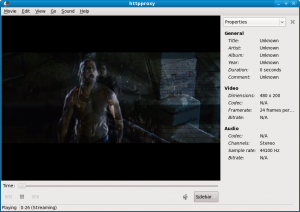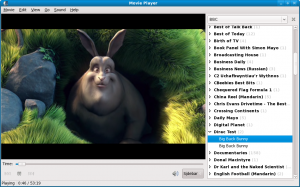Axis and GStreamer
Axis got a new camera out these days called the Axis P3301. Axis is well known for having what are probably the best network cameras on the market and this new beauty is especially nice as it uses GStreamer internally. It also supports Avahi, so you can get access to its services through avahi enabled applications, hopefully a feature we can get supported in Totem so you get access to these kind of cameras in your network very easily. Wim got gifted one of these by Axis while at their office in Sweden, which we got up and running at the Collabora Multimedia office now. Axis also got a video server, the AXIS Q7401 which also use GStreamer internally.
Jokosher
Jokosher is making great strides forward currently too. They did their 0.10 release a little over a Month ago and today Peteris Krisjanis told me that they just landed support for multichannel soundcards, which has been a major missing feature for a lot of potential Jokosher users. The mutichanel code is currently hosted in this branch on launchpad, but it will of course move into head once it gets stabilized.
Pitivi
Things are also moving forward with the Pitivi video editor these days. Edward recently merged the two Google Summer of Code projects that had been happening over the summer and also switched to the so called advanced timeline view to be the default in Pitivi. Thanks to Serat’s work there is now a structure in place in Pitivi for handling live sources, like webcams or DV cameras for instance. The simple timeline feature has also been dropped now as it turned out to be a lot less useful than we originally envisioned. So going forward the focus will be on making the previously named ‘advanced’ timeline userfriendly and easy to use instead. We will have some further cool Pitivi related announcements coming soon :)
Collabora Multimedia
We had our first ever full meeting of the Collabora Multimedia division over the last few days in Barcelona. It was the first time Wim, Edward, Tim, Mark, Sebastian and myself where all together. It was both a social event to get to know eachother, but also a good chance to discuss various technical issues. For instance Tim and Edward managed to solve a painful python threading issue we have been experiencing in a current project we have been doing together with Canonical and the BBC, which is writing a Totem plugin to enable viewing of various BBC content easily through Totem (as mentioned in the Ubuntu beta release notes. The plan is to push this plug-in upstream also, so that everyone using Totem can get it.


